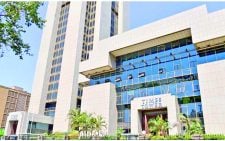Virus funds benefitted top firms

Steve Umidha @SteveUmidha
Kenya’s biggest corporations profited the most from the pandemic funds at the expense of small firms which were left exposed when Covid-19 hit.
According to a new report dubbed Towards a People’s Recovery: Tracking Fiscal and Social Protection Responses to Covid-19 in the Global South, 63 per cent of foreign funding from the World Bank and International Monetary Fund (IMF) among other donors benefitted big businesses.
Authored by the Financial Transparency Coalition (FTC) and partners, the survey which analysed data from nine countries Kenya, South Africa, Sierra Leone, Bangladesh, India, Nepal, Honduras, Guatemala, and El Salvador also found that just a quarter of the funds went to social protection.
Bailout funds
In Kenya for instance, the survey found that 92 per cent of Covid-19-related bailout funds went to big corporations rather than to those facing poverty despite the country’s corporate tax rate being the lowest in East Africa.
“Most countries in the Global South were able to determine where to direct their public Covid-19 bailout funds.
There are a whole host of reasons, however, why they did not direct resources to social services, and these ranged from the inadequate capacity of governments to identify vulnerable populations in their respective countries to lobbying by the private sector for policy change in their favor,” said Chenai Mukumba, Policy Research and Advocacy Manager at Tax Justice Network Africa (TJNA).
The World Bank provided Kenya with $50 million in immediate funding to support the country’s emergency response with most of the funding now unaccounted for.
Last month for instance, hundreds of thousands of Kenyans signed an online petition opposing the disbursement of $307.5 million (Sh33.5 billion) by the IMF to be used for budget support.
Through global lobby website, Change.org, the petitioners had demanded that the IMF Executive Board cancel the loan because of alleged corruption involving previous disbursements.
“This opacity is partly due to most international monitoring systems looking at initial funding announcements rather than tracking the actual disbursement of funds,” reads the report in part.













